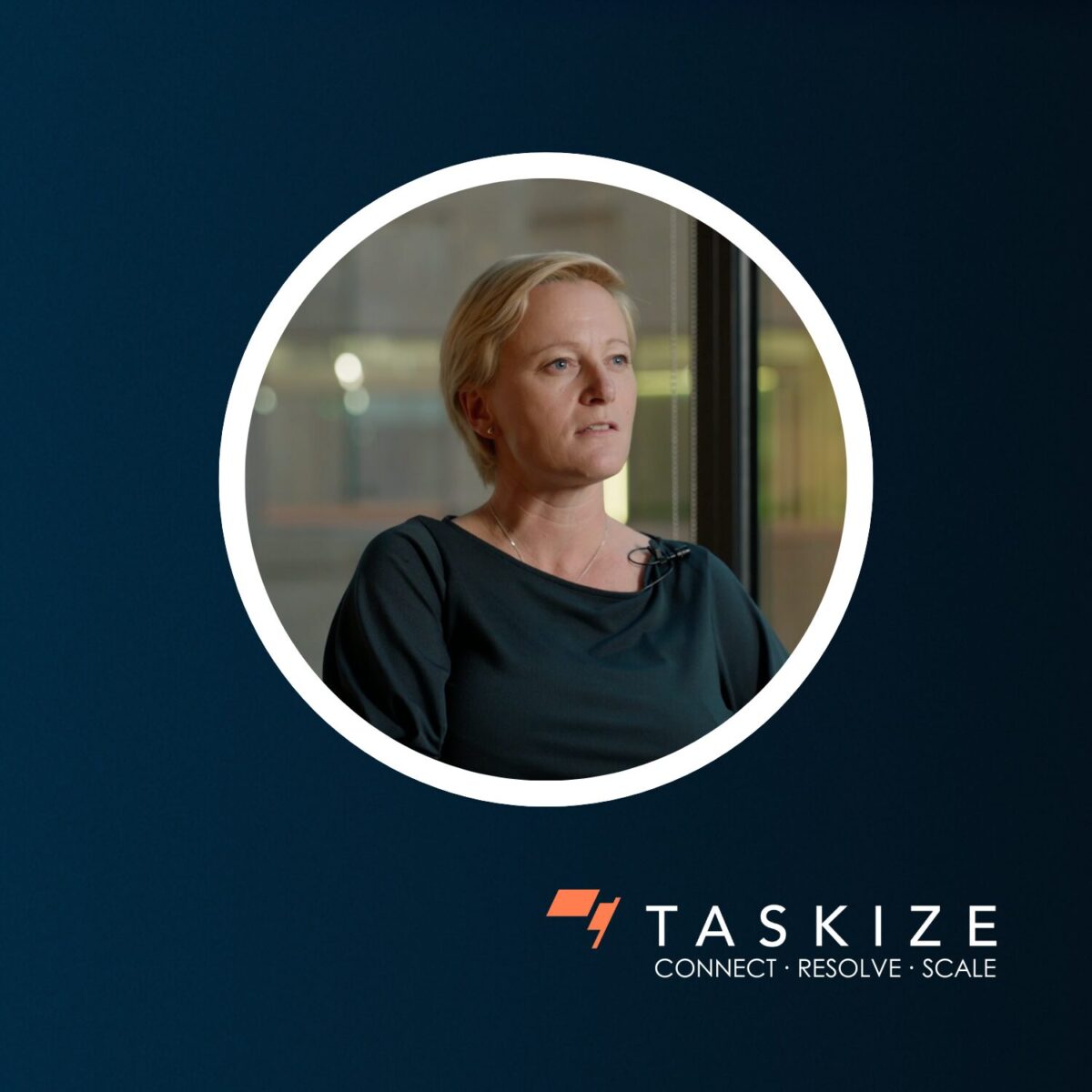People & Culture
Taskize Forum 2024 brought together industry leaders at Level 39, One Canada Square in London to discuss the evolving landscape of financial services, particularly around the modernisation of post-trade operations.
Taskize Forum 2024 brought together industry leaders at Level 39, One Canada Square in London to discuss the evolving landscape of financial services, particularly around the modernisation of post-trade operations.
The first session of the event – ‘The Banks’ Perspective’ – tackled structural, operational, and regulatory challenges for banks and pinpointed how fintechs can help overcome them. We were joined by industry experts from BNY Mellon (Nitesh Pai, Director of Custody Product Development & Connected Data) and Alpha FMC (Sean Kennedy, Associate Director). Sean was also formerly Global Head of Operational Governance at Vanguard, and the panel was chaired by Taskize’s interim CEO, James Pike.
Watch the video above for the full conversation or read on for our summary of the top 10 tech challenges in the banking sector as discussed in the panel.
1. Integration of legacy and new data
Integrating legacy with new data models remains a complex challenge for many banks. During the panel, James emphasised the importance of ensuring data is cleansed and updated to meet current standards: “You’ve got to make sure that data has been cleansed, quarantined, and updated to meet the new data standards”.
The Taskize platform supports this integration by offering an interoperable, web-native solution that simplifies the merging of old and new data, ensuring data integrity and usability.
2. Balancing in-house and third-party capabilities
The debate between outsourcing and maintaining internal builds is crucial for banks seeking to balance cost and control. Sean Kennedy noted that while outsourcing can bring advanced capabilities, the need for customisation often leads banks back to in-house solutions.
Finding the right balance between in-house capabilities and third-party services is an ongoing challenge. Sean shared insights on navigating this balance, suggesting hiring third-party providers for expertise while maintaining critical functions internally:
“You’re hiring in most cases someone to do something for you because they invest in their tools and they’re doing a good job, and their client service is decent.”
3. Delivering real-time data
Delivering real-time data is critical for banks to remain competitive. Nitesh Pai discussed the need for systems that provide real-time insights while ensuring a seamless user experience: “How can we then have use cases wherein we can deliver real-time data and how can we make the experience still native by having deep links?”.
4. Operational efficiency through standardisation
Standardising data and processes is key for banks to improve their operational efficiency. James highlighted the benefits of standardised operating procedures, enabling teams across time zones to collaborate effectively: “Creating standardised operating processes and the ability for work to be passed around different teams in different time zones is really important”.
Taskize supports this standardisation through its intelligent query routing and Smart Directory, which allocates work across available resources and in turn streamlines operations, reduces errors, and enhances productivity.
5. Effective change management
Change management is a significant challenge for banks, with numerous competing priorities and limited resources. Sean pointed out that effective change management requires careful planning and prioritisation: “You’ve got a lot of competing priorities for resources, and resources, both time and money, are limited everywhere”.
6. Adapting to T+1 settlement cycles
The shift to T+1 necessitates significant operational changes, with banks having to integrate data to manage processes proactively and ensure transparency. Nitesh discussed the importance of understanding where failures occur in the settlement process, whether at the custodian or within the firm itself, to mitigate risks and improve efficiency: “How do I start getting transparency? Has it failed at the custodian? Who’s at fault? Is it me or them?”
In this case, the Taskize platform offers visibility and transparency in settlement processes, helping banks identify and address failures promptly.
7. Leveraging data for strategic decision making
Utilising data for strategic decision-making is essential for banks and modern financial firms. Sean emphasised how understanding data can reveal patterns in exceptions and inefficiencies, allowing banks to optimise their operations: “You now know what people are spending their time doing, what types of exceptions, with whom, how long they take to resolve them. That is golden!”
By analysing data on what tasks take the most time and where issues frequently arise, firms can make informed decisions to streamline their processes. With its MI reporting feature, Taskize provides robust data analytics and reporting, helping banks gain insights and make informed decisions.
8. Proactive risk management
Proactive risk management is essential for banks to mitigate potential threats. James highlighted the need for integrating new data standards to manage risks effectively: “As long as we’re in a place where there are multiple data standards being used, there is always going to be risk”.
9. Enhancing collaboration and transparency
Collaboration and transparency are essential for banks to future-proof their operations. Nitesh emphasised that “providing the transparency back to the client is where the value add will lie”.
10. Continuous innovation in fintech
Innovation remains at the heart of financial services and is crucial for banks to stay competitive. This involves not only adopting new technologies but also ensuring that staff are trained to use these tools effectively:
“There are macro components to that and then there are the micro elements around skillset where certain types of technology changes are going to challenge and change what’s needed”. – Sean Kennedy
All of these challenges underscore the dynamic nature of the banking industry and the importance of adapting to technological advancements, managing change effectively, and leveraging data for strategic advantage. The Taskize platform offers banks the tools and capabilities to navigate these challenges and seize opportunities in the evolving financial landscape.



